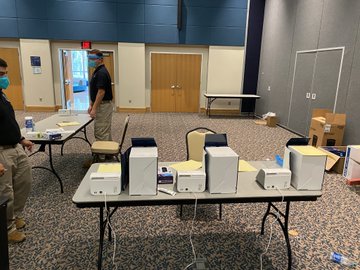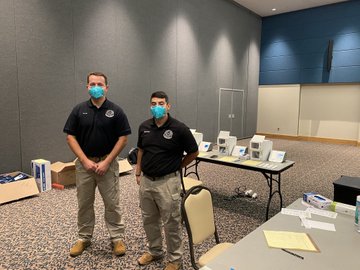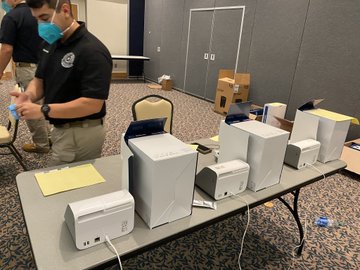My thoughts. You can read the article to understand the article, I'm just sharing my thoughts.
I'm really starting to loathe Bonnie Raitt. As a musician, she might be talented. As a singer? I've never been impressed and the only thing worse than her signing it her attempts to write songs. I was reminded of how useless she is in the VANFAIR piece. She goes on about herself and Linda Rondstadt and Nicolette Larson (I never liked Larson whose father was FBI and who was an uptight prig) and blah blah. She doesn't want to give Joni Mitchell one word of credit. Now I know she's never going to credit Carly Simon because Bonnie loathes Carly. It goes back to Carly being popular and Bonnie struggling to sell records. By 1979, Bonnie was having a fit because Carly wouldn't auto sign on every No Nukes statement. Apparently, Carly was just supposed to go along with everything.
The article is about the Laurel Canyon scene. Bonnie wasn't part of that scene. But she ignores Joni Mitchell and Cass Elliot and instead pretends like she was the center -- she wasn't the center of s**t. She shows up in Laurel Canyon in 1972 -- as a visitor. That's long after Joni and Graham Nash broke up. The scene was over by the time Bonnie shows up.
I'm sick of her. She's a hateful woman who always tries to be one of the boys. Go away, Bonnie, you're useless and always have been useless.
Second slam: Carole King stop playing shy.
Carole was part of that scene. She's erasing herself from history by not being part of the oral history. She needs to start speaking up. Carole was f**king Laurel Canyon. From the late sixties through the early seventies. She gets no real credit in the article because she's not tooting her own horn. Carole could -- and has before -- talked about women in the Laurel Canyon scene. Her voice is needed and important. She was a member of the scene and she could speak honestly. Bonnie just speaks about the boys -- plus Linda.
Joni speaks and she does a good job. David Crosby and Graham and Stephen Stills do a good job. I have no idea why they made the idiotic decision to include Judy Collins. She is NYC based. Carly is also East Coast so she's not going to be in it and isn't. But Judy pops up to talk about being a drunk -- apparently she and Bonnie never got drunk together when they were addicts because there's no mention of that. Judy slept with Stephen Stills -- that doesn't make her West Coast or Laurel Canyon.
Michelle Phillips does a great job and music history will suffer when she passes because she is one of the most important voices when people are taking oral histories. While the boys -- Elliot Roberts, ect -- are talking nonsense about how the scene ended (We had kids and became parents) she gets right to the point: 1969 and Charles Manson.
It's a shame Laura Nyro is mentioned most kindly by David Crosby. With all the money David Geffen made off of Laura, you'd think he could at least say some nice things about her. She was a one of a kind artist and I'm glad David Crosby participated because he makes that clear.
David is very generous to everyone and I'd rank him second, after Michelle Phillips, as best when it comes to oral histories.
“From approximately March 2020, the coronavirus disease (COVID-19) pandemic became a factor in ISIL operational, propaganda, and fundraising activities,” the U.N. Security Council was warned last week.
ISIS is “consolidating in Iraq and the Syrian Arab Republic,” said a U.N. report to the Council, “and showing confidence in its ability to increasingly operate in a brazen manner in its core area.”
Alarming experts is ISIS’s ability to move freely between eastern Syria and western Iraq – territory that once fell under its “caliphate” – entering towns and villages with relative ease. Its ranks boast around 10,000 fighters, according to U.N. and analysts’ estimates.
“The pandemic came at a time with preexisting conditions on the ground in Iraq and Syria that allowed ISIS to benefit,” says Hassan Hassan, director of the Non-State Actors and Geopolitics program at the Washington-based Center for Global Policy.
In a statement published on ISIS' Telegram propaganda channel, the extremist group claimed its militants "killed General Brigadier Ahmed al-Lami, commander of 7th division of the 29th brigade of the Iraqi Army in an ambush in Anbar."
The statement also claimed that another officer was killed in the ambush which also injured an Iraqi soldier.
Yehia Rasool, spokesperson for the Iraqi commander-in-chief released a statement early Wednesday confirming the death of the “brave commander.”
The U.S. will hand over control of bases in Iraq and is likely to reduce its overall troop level within the country as progress against the remnants of the Islamic State group continues, a senior official with the American-led coalition said.
On July 25, U.S. forces will hand over control of the Besmaya base south of Baghdad to Iraqi forces, and Spain’s training contingent will return home, USAF Maj. Gen. Kenneth P. Ekman, the deputy commander of Combined Joint Task Force-Operation Inherent Resolve, told reporters via videoconference July 22.
“There will be some degree of a reduction in force in Iraq, that’s what success looks like,” he said.
Early last October, while working in his office in Baghdad, a businessman named Hussein Laqees got a phone call from a number he’d never seen before. “We need to talk,” the caller said. The man’s voice was gruff and self-assured, a little menacing. He demanded that Laqees come meet him but refused to give his name.
Laqees demurred, and the call ended. He might have forgotten the whole exchange had a colleague not been in touch a few minutes later with worrisome news. The mystery caller, he said, was from Kataib Hezbollah, a powerful Iraqi militia with strong ties to Iran’s Revolutionary Guards. They had a business proposal to discuss.
When the militiaman called again, Laqees reluctantly agreed to a meeting. He gathered a few colleagues, and they all drove to a house off Sadoun Street in downtown Baghdad, arriving near dusk. Inside, he was led into a dim office and introduced to a small, bald man who got right to the point. “You need to work with us, there is no other choice,” the bald man said. “You can keep your staff, but you must do as we say.” He explained that Kataib Hezbollah would take 20 percent of Laqees’s gross revenue — about 50 percent of his profits.
Laqees refused. His company, Palm Jet, had a five-year government contract to run a V.I.P. terminal at Baghdad’s international airport, along with a nearby hotel; it also works routinely with Western aeronautics firms like Lockheed Martin. He could not have any dealings with a group like Kataib Hezbollah, which is listed by the U.S. government as a foreign terrorist organization (as is the unrelated Lebanese group also called Hezbollah). The bald man replied that if Laqees refused, he would seize everything he owned in Baghdad. Laqees looked at him in disbelief. “I’m an investor,” he said. “There is law.” The bald man shot back: “We are the law.” He told Laqees to give him an answer by noon the next day.
The following afternoon, five Chevrolet S.U.V.s rolled up outside the V.I.P. terminal. Twelve men got out, dressed in black paramilitary gear and carrying guns. They found Laqees in the cafe of the airport hotel, smoking and sipping coffee. He had been calling all his government contacts since the night before, along with the airport’s department heads. No one had called back. It was as if they’d been warned — or perhaps paid off. The militiamen took Laqees’s phone and told him to sign a document relinquishing his contract. He stalled for time. One of his employees slipped outside to take a cellphone picture of the militiamen’s vehicles, but they caught him, smashed his phone and beat him up. Laqees, who is Lebanese, had been working in Iraq since 2011. He knew the country was troubled by crime and corruption, but he believed that the airport, with its hundreds of uniformed immigration and security officials, was different. “I wait 20 minutes, maybe someone will come,” Laqees told me later. “Police, something.” Finally, he walked to the departures hall and caught a flight to Dubai. Days later, Kataib Hezbollah installed its preferred contractor in his place. Laqees has not returned to Iraq since.
The militias have been aided and abetted by a new Iraqi political class whose sole ethic is self-enrichment. Over the years, this cross-sectarian cabal has mastered scams at every level: routine checkpoint shakedowns, bank fraud, embezzling from the government payroll. Adel Abdul Mahdi, who was hailed as a potential reformer when he became Iraq’s prime minister in 2018, hoped to subordinate the militias to the state. Instead, they outmaneuvered and overpowered him. His cabinet included people with ties to some of the worst graft schemes afflicting the country.
The United States is deeply implicated in all this, and not just because its serial invasions wrecked the country and helped ravage the economy. America provides the money that sustains it, even as U.S. officials wink at the self-dealing of Iraqi allies. The Federal Reserve of New York still supplies Iraq with at least $10 billion a year in hard currency from the country’s oil sales. Much of that is passed on to commercial banks, ostensibly for imports, in a process that was hijacked long ago by Iraq’s money-laundering cartels. At the same time, the United States inflicts punishing sanctions on two countries -- Iran and Syria -- with which Iraq shares notoriously permeable borders. It is the ideal breeding ground for corruption.
Nouri's slaughter. The April 23, 2013 massacre of a sit-in in Hawija which resulted from Nouri's federal forces storming in. Alsumaria noted Kirkuk's Department of Health (Hawija is in Kirkuk) announced 50 activists have died and 110 were injured in the assault. AFP reported the death toll eventually (as some wounded died) rose to 53 dead. UNICEF noted that the dead included 8 children (twelve more were injured).
And where was the US?
Where was the White House?
Did they immediately demand justice? Or that Nouri step down? Or express solidarity with the protesters?
No, they just looked the other way and continued holding hands with Nouri al-Maliki.
In fact, at that point they pretty much had their hands down Nouri's pants.
Oh, the Yazidis! Trapped on a mountain top!
But when Nouri's forces killed protesters -- and Hawija is only the biggest slaughter -- Barack Obama was still thrilled to hold hands with the man he installed in 2010.
Because Nouri lost the election.
Despite bribery and bullying, in 2010, he came in second in the elections.
But Barack Obama overturned the election results. And, via the US-brokered Erbil agreement, he gave Nouri a second term.
Liar Patrick Cockburn ignores that as well.
He wants you to know that Iran decreed Nouri would get a second term in October and that's how it happened.
Well if tehran is so damn all powerful, than their decision in October should have been immediately implemented, right?
But that's not what happened is it?
November 10, 2010, The Erbil Agreement is signed. November 11, 2010, the Iraqi Parliament has their first real session in over eight months and finally declares a president, a Speaker of Parliament and Nouri as prime minister-designate -- all the things that were supposed to happen in April of 2010 but didn't.
March 7, 2010, Iraq concluded Parliamentary elections. The
Bully Boy Bush installed Nouri as prime minister in 2006.
The Iraqi people suffered.
And in 2010, they went to the polls.
And they voted for something other than Nouri.
Despite his bribery, his bullying, the threats and so much more, they voted Nouri out.
But Barack overturned their votes and insisted Nouri get a second term.
So, yes, the Hawija massacre is something Barack bears responsibility for.
Chronic power outages combined with low oil prices threaten Iraq’s political stability, and OPEC’s second-biggest producer must act fast to boost electricity supply or face a new crisis within the next two months.
That’s the conclusion of Fatih Birol, the head of the International Energy Agency, which advises the world’s richest economies on energy policy.
Iraq faces a widening shortfall in electricity, due largely to a lack of investment in aging power plants and networks, and the plunge in crude prices this year limits what it can spend to upgrade them. Baghdad must slash red tape and prioritize maintenance and spending on power facilities to stave off social and political turmoil, Birol warned.
“If there are not urgent and concrete steps taken for the electricity sector, we may well have major problems in the next two months in terms of electricity supply,” he said in an interview. “It may well lead to unrest within the country.”
In a grim sign of what could come, security forces in Baghdad opened fire Sunday on protesters complaining about power cuts. Two demonstrators were killed and at least 20 others wounded. Iraq’s Prime Minister Mustafa al-Kadhimi ordered an investigation into the killings.






